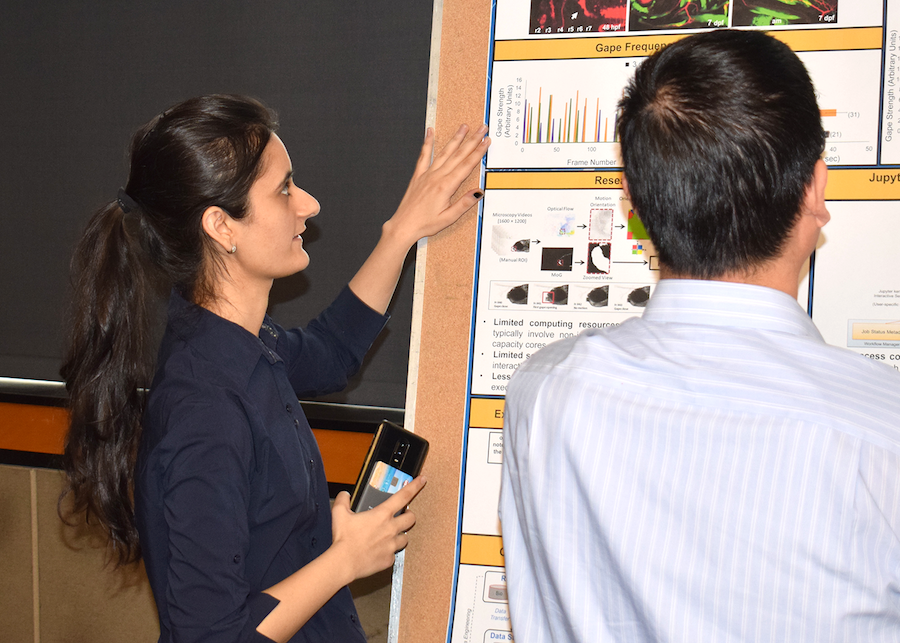March 26, 2019

The third Neuro Big-Data Symposium featured projects showcasing software and automation workflows built to improve research and training applications.
The third Neuro Big-Data Symposium picked up where its two predecessors left off, taking the next step in the partnership of computing and biological sciences in aid of neuroscience research.
The symposium, held March 22 at Bond Life Sciences Center, was conceived as a way of building collaborations to advance important medical research related to the human nervous system, growing the potential to reach necessary medical breakthroughs. This edition featured projects showcasing software and automation workflows built to improve research and training applications.
“It’s come full circle. The first two we were just starting out and defining what we wanted to do,” MU Engineering doctoral candidate Ben Latimer said. “Now we have some end-to-end demonstrations we can do at several different levels. Gene level, single cells, networks and behavior — we’re at every level of neuroscience here.”
Students and faculty members gave presentations on current research, specific software tools for researching and teaching and held a discussion on how to best serve MU researchers with their big data needs.
The Neuro Big-Data Symposium goes hand-in-hand with Mizzou’s CyNeuro platform. Electrical Engineering and Computer Science faculty members Satish Nair, Dong Xu and Prasad Calyam, along with Trupti Joshi, the School of Medicine’s director of Translational Bioinformatics, spearheaded its creation. The free web portal helps expedite neuroscience research by providing access to critical computing resources and best practice approaches to help make data seeking and analysis quicker and more user friendly for scientists of all computing skill levels.
The symposium helps further that important work and is sponsored by a grant from the National Science Foundation, which found value in the interdisciplinary approach Mizzou could provide. At MU, a single campus is home to world-class researchers in cloud computing and big data as well as brilliant life science researchers. Bringing them together in service of improving neuroscience research and outcomes was a no-brainer for Calyam, Joshi, Nair and Xu.
“Everything here is building off of other projects, and there’s a cohesive message that comes out of seeing it all together,” Latimer said. “It’s good for networking, and it’s good for students to learn, too.”